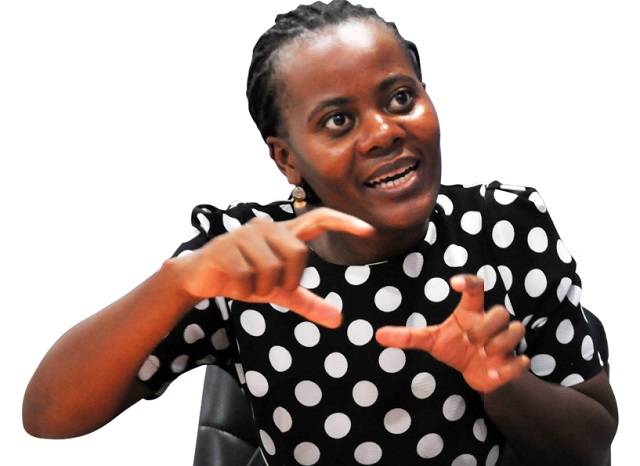
Ugandan women recently took to social media platforms to share horrendous tales of rape. Primah Kwagala, the Chief Executive Officer of Women’s Probono Initiative; a Kampala-based civil society organisation, spoke with The Independent’s Ronald Musoke about the rape allegations and why Ugandan society generally suffers from a gender-based violence problem.
First, tell us about the Women’s Probono Initiative?
The Women’s Probono Initiative is a civil society organisation founded in July 2018 to advance access to justice for women and girls through awareness creation, legal representation, research and knowledge sharing.
What informed your decision to found this organisation?
I am a first born child from a family of eight. Seven girls and one boy. I have grown up in a (patriarchal) system and seen how girls are treated. My mom, for instance, kept having kids just because the community kept piling pressure on her to get a boy who would inherit the family estate and keep my father’s name. My mother is a secondary school teacher and she has told me she wanted to have four children. So we grew up knowing that we the girls are actually not enough. I soon realized that the exclusion is ingrained in the system, tradition and in our families. When I got into law school, I realized that the laws have tremendously changed but the practice has not. Our legal system was founded by men; the laws are created by men because not too many women are in the boardrooms when these laws are being written. But also the people enforcing these laws are men; so you often find that the issues that are specific to women are not incorporated in the legal system.So you find that many aspects of the criminal justice system do not have reasonable accommodation for issues specific to women and this is more apparent when it comes to issues of sexual violence. So I decided to found the Women’s Probono Initiative to represent women and girls. But we also thought we could start a discussion on these kinds of issues.
What exactly does the Women’s Probono Initiative focus on?
We focus on vulnerable women and girls because we know that there are women out there who can afford to pay their legal fees. For these kinds of women, we just offer legal advice or guide them so they work with our partners some of whom include law firms and other NGOs around the country.
Is there a particular factor to explain the high level of gender inequality and sexual abuse in Uganda?
The system of patriarchy largely explains this prevalence. We know that men have the power, the resources and they are the ones who make the laws and they are the ones enforcing the laws. So they have the law on their side, they have power on their side, they have money on their side and they have society and tradition in their corner. The law is basically ‘steeped against’ women.
Talking about sexual abuse in Ugandan society, what have you made of the recent outburst of rape allegations on social media by young Ugandan women?
I think social media has offered women the space and platform to express themselves because of the failure by Uganda’s legal system to address women’s sexual violence concerns. In 2018, the police crime report noted how they received 1,580 rape cases of female adults. From this number, 644 cases were taken to court out of which 16 cases secured convictions. One man was acquitted; seven cases were dismissed, while 618 cases are still under investigation. Do you know why over 600 cases never got to see the light of the day? It is because the system and the law say the evidence is not enough to convict someone. Since women started sharing their rape experiences, we released a social media statement telling them to come here and report their cases if they are interested in finding legal recourse. We want to document these cases but we also want to start a discussion around the definition of sexual violence. Rape is defined as unlawful carnal knowledge of a woman. But when police is collecting evidence of rape, they will take the victim through a medical examination to establish whether there was force involved. But we know that sometimes there is no force involved. You could, for instance, be my boyfriend and we have been having sex but on this occasion I don’t want to have sex but you go ahead to rape me. Sometimes, for women who are sexually active, there will probably be no evidence of tear. The doctors sometimes are looking for things like semen to get the forensic audit but we know that sometimes, a man will not ejaculate. You get to the reception area of the police and there are male policemen and you have to say why you have come and what you are reporting. That is before the police officers identify the right officer for the victim to speak to. When they find the right person, the victim has to narrate their story again. Then this policeman will say, no, the OC CID has to hear this and the victim will repeat her story. But for a victim, who has gone through this, repeatedly telling this story is like going through the entire rape incident and before the case is filed, the victim has gone through a whole process of psychological torture. So, we want to tell court that the process of reporting rape has to befixed.
 The Independent Uganda: You get the Truth we Pay the Price
The Independent Uganda: You get the Truth we Pay the Price


